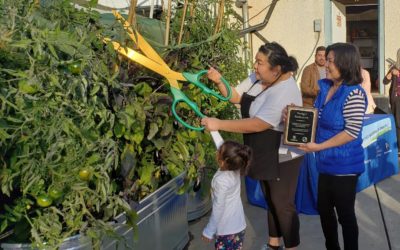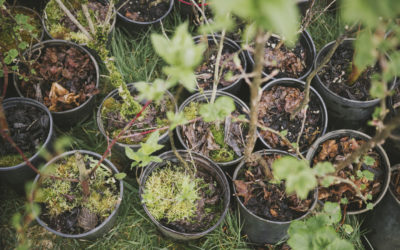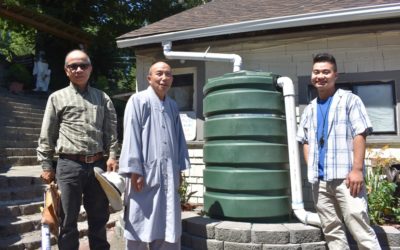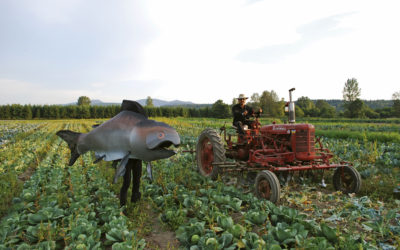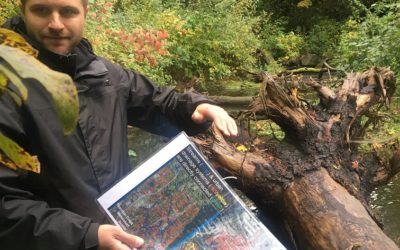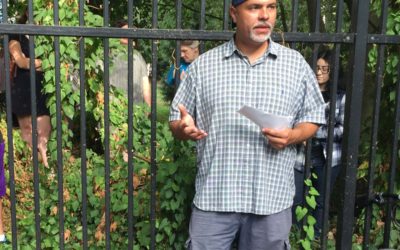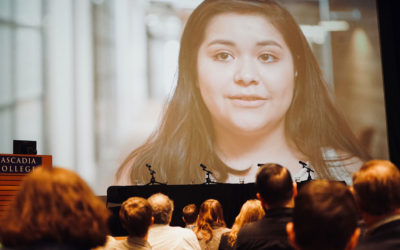Meet the first Seattle restaurant to tackle stormwater pollution
White Center Meet the First Seattle Restaurant to Tackle Stormwater Pollution Date (if desired) By Will Chen Toxic stormwater runoff is Seattle’s #1 source of pollution. During heavy rains, stormwater surges through city pipes. These surges can cause overflows that...
Tree Planting Projects Kick Off Around Puget Sound
TREE PLANTING PROJECTS KICK OFF AROUND PUGET SOUND Date (if desired) By Hannah Kett As fall gets under way in Washington state, there is one type of nature that is top of mind for many people: trees. With leaves changing colors to create a beautiful backdrop, it is...
Partner Spotlight: ECOSS
2018 Urban Forest Symposium
The 2018 Urban Forest Symposium brought together a diverse range of practitioners and thought leaders to discuss and share pertinent information regarding trees in our urban areas. The day included speakers from around the region and beyond to discuss the value – and challenges – of partnership in this work. This year’s event was transformative, with inspirational speakers invigorating attendees to build partnership, think creatively, and collaborate equitably.
Partner Spotlight: Stewardship Partners
Every month or so, City Habitats will put a spotlight on the work of one of our partner organizations that has exemplified truly innovative and inclusive projects toward implementing green stormwater infrastructure in the region. We hope that these Partner Spotlights will give other organizations an opportunity to learn about similar work and inspire them to seek collaborative efforts. On a sunny day in Seattle, I sat down with Aaron Clark, the Director of Strategic Partnerships for Stewardship Partners. Stewardship Partners represent one of the original convening members of the City Habitats coalition, the convener of the yearly Puget Sound Green Infrastructure Summit, and perhaps the most appropriate organization to be highlighted for our first City Habitats Partner Spotlight.
Kingfisher Reach Hyporheic Zone
The expansion of urban areas around the world has increased the number of impervious surfaces such as sidewalks, roofs, and roads. When it rains and the resulting stormwater hits the ground, these impervious surfaces can have negative impacts on both the surrounding community and environment. When water can’t be absorbed into the ground, it may cause flooding of roads and other infrastructure. When stormwater travels over impervious surfaces, it also picks up pollutants from the ground and transports them into local waterways.
City Nature Challenge 2018
What are the most common species in cities across the globe? What species of plants and animals do we have in the Seattle metropolitan area that aren’t found anywhere else in the world? Woodland Park Zoo invites people across the Seattle metro area (including all of Snohomish, King and Pierce counties!) to join the City Nature Challenge 2018 to help us answer these questions! After launching the first-ever City Nature Challenge in 2016, the Natural History Museum of Los Angeles County and San Francisco’s California Academy of Sciences are hosting their third—and much larger—effort.
Little Brook Youth Corps
“A lot of people don’t know about this community,” says Mark Mendez of the North Seattle neighborhood where he grew up. “They think Lake City is just white people.” In fact, Lake City’s Little Brook community boasts a range of ethnicities and languages, and a good number of residents who are recent immigrants. It’s a densely populated, mostly low-income area with little green or open space that has been overlooked in neighborhood improvement and planning efforts—something Mendez, a community leader and youth advocate, wants to change…
2018 Green Infrastructure Summit
Inclusion is an important, yet nuanced, subject, especially within the realms of career development. At the Puget Sound Green Infrastructure Summit, a City Habitats’ event convened by Stewardship Partners, held at Cascadia College in Bothell on February 9th. Inclusion was discussed at length during the keynote panel entitled “Building the Diversity of the Green Infrastructure Field.”
Subscribe to our e-mail list.
Stay up-to-date on how we are building a movement around nature in cities - including the latest stories from the blog and upcoming events.
© Kevin Arnold

